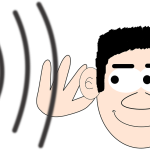List of Drugs That Can Cause Alexithymia

What is Alexithymia?
Alexithymia is defined as a psychological condition characterized by difficulties in identifying and describing emotions in oneself. People with alexithymia often struggle to recognize and understand their own feelings and have limited ability to express them. The term “alexithymia” originates from Greek, where “a-” means “without,” “lexis” means “words,” and “thymos” means “emotion” or “feelings.”
Individuals with alexithymia may experience a range of symptoms, including:
1. Difficulty identifying emotions: They may have trouble distinguishing between different emotions or recognizing what they are feeling at a given time.
2. Limited emotional vocabulary: They may lack the words to describe their emotions or have a very restricted emotional vocabulary.
3. Difficulty expressing emotions: Expressing emotions verbally or non-verbally may be challenging for individuals with alexithymia. They may appear emotionally detached or unresponsive in social situations.
4. Physical symptom focus: Instead of recognizing and acknowledging emotions, individuals with alexithymia may focus more on physical sensations or exhibit somatic symptoms when experiencing emotional arousal.
5. Reduced fantasy life: Alexithymic individuals often have a reduced capacity for imagination and fantasy, which can affect their ability to understand and explore emotions.
The exact causes of alexithymia are not fully understood, but it is believed to result from a combination of genetic, neurobiological, and environmental factors. Some research suggests that alexithymia may be associated with certain medical conditions, such as autism spectrum disorder, post-traumatic stress disorder (PTSD), psychiatric disorders, and some medications.
It’s important to note that alexithymia is a complex condition, and its impact can vary from person to person. If you or someone you know is struggling with alexithymia or related emotional difficulties, it is recommended to seek help from a qualified mental health professional. The most commonly used and well-known test for assessing alexithymia is the Toronto Alexithymia Scale (TAS-20). The TAS-20 is a self-report questionnaire that consists of 20 items designed to measure different aspects of alexithymia. It assesses difficulties in identifying and describing emotions, as well as externally oriented thinking. The TAS-20 is scored based on the individual’s responses, and higher scores indicate a higher degree of alexithymic traits.
The TAS-20 is typically administered by a healthcare professional or researcher who specializes in psychological assessment. They can provide the questionnaire, guide the individual through the process, and interpret the results. It is important to note that the TAS-20 should be used as a screening tool and not as a definitive diagnostic measure. A comprehensive assessment by a qualified professional is necessary for a formal diagnosis of alexithymia.
List of Drugs That Can Cause Alexithymia
While there is limited research specifically linking medications to the development or triggering of alexithymia, certain drugs may have effects on emotional processing or regulation that could potentially contribute to difficulties in identifying or expressing emotions. It’s important to note that individual responses to medications can vary, and these effects are not experienced by everyone. Here are some medications that have been reported anecdotally or in studies to potentially affect emotional processing:
1. Selective Serotonin Reuptake Inhibitors (SSRIs): SSRIs are commonly prescribed antidepressants that may have varying effects on emotional experiences. Some individuals report feeling emotionally blunted or having difficulty experiencing a full range of emotions while taking SSRIs. Certain SSRIs, such as fluoxetine (Prozac) and sertraline (Zoloft), have been reported anecdotally to potentially cause restricted emotions or emotional blunting in some individuals.
2. Antipsychotics: Certain antipsychotic medications, particularly those that act on dopamine receptors, may impact emotional expression and regulation. Some individuals may experience emotional numbing or a reduction in the intensity of emotions. One antipsychotic medication associated with the potential for restricted emotions or emotional blunting in some individuals is risperidone, which is commonly prescribed for conditions such as schizophrenia and bipolar disorder.
3. Benzodiazepines: Benzodiazepines are a class of medications commonly prescribed for anxiety and sleep disorders. These medications can have sedating effects, and in some cases, individuals may report feeling emotionally dulled or having difficulties with emotional awareness while taking them. Examples of benzodiazepines that have been associated anecdotally with potential emotional blunting include diazepam (Valium), lorazepam (Ativan), and alprazolam (Xanax).
4. Mood Stabilizers: While mood stabilizers are primarily used to manage bipolar disorder, some individuals may experience changes in emotional experiences while taking these medications. It’s important to note that these medications are often prescribed to enhance emotional stability rather than induce alexithymia. One example is lithium, a commonly prescribed mood stabilizer. However, it’s important to note that the specific effects of emotions can vary among individuals, and not everyone will experience emotional restrictions.
5. Anticonvulsants: Certain anticonvulsant medications used to treat epilepsy or mood disorders have been associated with emotional blunting or difficulties in emotional processing. Again, these effects can vary among individuals. An example of an anticonvulsant medication that can trigger alexithymia is valproic acid (Depakote), commonly used as a mood stabilizer.
It’s crucial to understand that the potential effects of these medications on emotional experiences are highly individualized, and not everyone will experience the same effects or develop alexithymia. If you have concerns about the effects of the medications you are taking, it is important to discuss them with your prescribing healthcare professional, who can provide specific guidance based on your unique situation.
Alexithymia and Addictions
Research findings indicate that alexithymia is a trait that has been found to be associated with substance dependence. Studies have shown a positive correlation between alexithymia and the development or exacerbation of substance use disorders. Individuals with higher levels of alexithymia tend to have an increased vulnerability to substance dependence and may face challenges in effectively coping with emotions, which can contribute to substance use as a maladaptive coping mechanism. However, it is important to note that the relationship between alexithymia and substance dependence is complex and multifaceted, involving various factors such as psychological, social, and biological influences. Further research is needed to gain a more comprehensive understanding of this association and its underlying mechanisms
How to Manage Drug-Induced Alexithymia
If you suspect that your alexithymia is drug-induced or exacerbated by medications you are taking, it is essential to consult with your prescribing healthcare professional. They can evaluate your medication regimen and determine if any adjustments or alternatives are appropriate. Here are some general strategies that may be helpful in managing drug-induced alexithymia:
1. Open communication: Discuss your concerns with your healthcare professional, providing specific details about your experiences of alexithymia. This information can assist them in evaluating the potential role of medications and exploring alternative treatment options.
2. Medication adjustments: With your healthcare professional’s guidance, it may be possible to adjust the dosage or switch to an alternative medication that has a lower likelihood of causing or exacerbating alexithymia. However, it’s crucial to follow their recommendations and not make any changes to your medication regimen without professional supervision.
3. Psychotherapy: Engaging in psychotherapy, such as cognitive-behavioral therapy (CBT) or psychodynamic therapy, can be beneficial in addressing and managing alexithymia. A skilled therapist can help you explore and understand your emotions, develop emotional awareness, and learn coping strategies to express and regulate your feelings effectively.
4. Emotional self-care: Engage in activities that promote emotional well-being, such as journaling, mindfulness or meditation, creative expression (art, music, writing), or physical exercise. These practices can help you reconnect with your emotions and improve your overall emotional health.
5. Support groups or counseling: Consider joining a support group or seeking individual counseling where you can connect with others who may have similar experiences. Sharing your challenges and learning from others can provide validation, understanding, and additional coping strategies.
6. Lifestyle adjustments: Prioritize self-care by maintaining a balanced lifestyle that includes adequate sleep, regular exercise, a healthy balanced diet, and stress reduction techniques. These factors can contribute to overall well-being and potentially improve emotional regulation.
Remember, it is crucial to work closely with your healthcare professional to develop a personalized management plan for drug-induced alexithymia. They can provide the most appropriate guidance based on your specific circumstances and help ensure your overall well-being while addressing the medication-related effects on your emotions.





